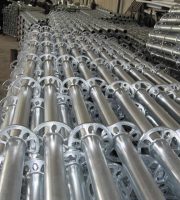“Internal contracting of economic responsibility for engineering projects” is different from “villagers’ land responsibility contracting system” (villagers smash crops, and villagers themselves bear the responsibility), while the project manager smashes the project, It is the company that bears the responsibility first.
The enterprise fulfilled its delivery obligations in accordance with the loan agreement), and suggested that the enterprise withdraw the lawsuit first, and then Sue separately according to the basic legal relationship (internal contract), claiming the return of advance funds (overpayment).
Internal contracting is a production organization mode to mobilize the production enthusiasm of project managers and other managers.
In the face of such a major uncertain litigation risk, the enterprise must withdraw the lawsuit first and prepare separately.
Based on the great uncertainty of criminal policy, the author still suggests that construction enterprises should not lend funds to internal contractors, especially when there are bank credit loans or guaranteed loans that have not been repaid, and the interest of lending should not be higher than the loan interest of the bank in the same period.
At this time, the company will agree to the loan request of the internal contractor.
This kind of lending relationship is generally considered not to belong to the behavior of usury lending in Article 175 of the criminal law and the illegal business behavior in the opinions on Several Issues concerning the handling of criminal cases of illegal lending.

The reasons are: the crime of high profit lending requires that the actor must have the purpose of making profits when obtaining the credit funds of financial institutions, otherwise, it violates the principle that behavior and responsibility exist at the same time.
Experts are welcome to contribute! [Ni Gong’s statement] about the dispute of “loan” or “advance payment” between construction enterprises and internal contractors — a brief discussion on whether “private loan legal relationship” and “project economic responsibility internal contract legal relationship” can coexist# The author believes that # most construction enterprises should have encountered the following situations, when the enterprise took a pile of “ious” issued by internal contractors (project managers) to the court to file a private loan lawsuit, asking for the repayment of the loan.
Note: in the process of drafting and discussion, this article was strongly supported by lawyers such as ye Meifeng of Zhenbang Institute, Dong Dong, Bao Congmin of zeran Institute, Ni Weineng of sunshine era Institute, Zhang Xinjia of Shanghai Yiding Institute, and Wang Wencai (certified public accountant certificate + legal professional qualification certificate) of a central enterprise and a senior financial officer of a company.
Source: This article is the work of external experts.
During the construction process, the company generally does not take the initiative to lend money to the internal contractor.
The money lent is often directly used for project construction, not for internal contractors or third parties to use elsewhere or squander.
▼ pay attention to construction management and obtain the latest national construction policies.
The money paid by the company is actually the project advance money, and the loan is only a form.
At this time, when the company appeals to the court for the return of the internal contractor, the internal contractor often raises the following defense: there is no real private loan legal relationship between the two parties.
Both parties reached an agreement on loan; 2.
For this reason, we will publish 3-5 articles and interpretations related to the qualification of construction engineering enterprises in the near future for the readers.

In order to avoid the uncompleted project, the company cannot account to the employer.

Elements of legal internal contracting: it must be internally contracted to branches (or functional departments) or employees of the company; The company provides support and coordination in technology, equipment, personnel and funds, and comprehensively supervises and manages the safety, quality and progress of the project; The internal contractor is responsible for the specific management of the project, raising funds, independent accounting, and responsible for its own profits and losses.
The illegal business behavior in the opinions on Several Issues concerning the handling of criminal cases of illegal lending requires the actor to “regularly issue loans to unspecified objects in the society for the purpose of profit”, while the construction enterprise often considers lending only when the internal contractor of the company has special circumstances, and will not lend to unspecified objects in the society.
When the project loses money or the employer defaults on the project payment, the internal contractor often does not take the initiative to repay the loan.
In addition, the Ministry of housing and urban rural development recently announced the draft for comments on the new standards for the qualification of construction engineering enterprises.
The company should be responsible for the safety, quality, progress and external debts of the project.
However, the purpose of obtaining loans in the normal operation of construction enterprises is to meet the normal needs of the company for actual construction, and there is basically no loan for the purpose of lending to internal contractors.
In fact, the internal contractor is unable to advance money.
Because of the long construction cycle, complex project management, difficulties in external settlement, and many construction costs have not been confirmed by the internal contractor, it is difficult for the enterprise to complete the burden of proof, and it is unable to or recover the advance (overpayment) in full.
The company is not laissez faire.
If it is handled according to the internal contract, the difficulty of the company’s loan recovery will be greatly increased: for loss making projects, the internal contractors often give up management at the later stage of the project, and no longer cooperate with the company to confirm the cost of the company’s expenditure, However, it is difficult for the company to provide evidence to prove the expenditure amount and rationality of the expenditure after the company receives it (for example, the normal labor is 300 yuan / day, and later in order to catch up with the work, 500 yuan / day is used, and the extra 200 yuan / day is not recognized by the internal contractor, which is difficult to be supported)..

After filing the case, the court, after preliminary examination, held that there was a lack of elements constituting the legal relationship of loan (1.
Based on the case retrieval of Zhejiang grassroots courts, the author tells readers that there is no much controversy about the view that the “legal relationship between private lending” and “legal relationship between project economic responsibility and internal contract” can coexist between enterprises and internal contractors.
The lawsuit of the company should be rejected, and the specific advance amount of the company should be handled in accordance with the dispute of the internal contract.
The definition of internal contracting and the generation of loan relationship laws and regulations do not prohibit construction enterprises from adopting internal contracting, which is more used by construction enterprises in Jiangsu and Zhejiang regions.
Although the probability of such criminal risk is very small, once it occurs, it will be a disaster to entrepreneurs.


